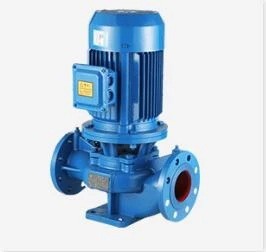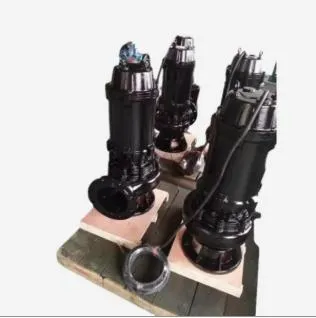TEL:
+86 13120555503
English
- Afrikaans
- Albanian
- Amharic
- Arabic
- Armenian
- Azerbaijani
- Basque
- Belarusian
- Bengali
- Bosnian
- Bulgarian
- Catalan
- Cebuano
- Corsican
- Croatian
- Czech
- Danish
- Dutch
- English
- Esperanto
- Estonian
- Finnish
- French
- Frisian
- Galician
- Georgian
- German
- Greek
- Gujarati
- Haitian Creole
- hausa
- hawaiian
- Hebrew
- Hindi
- Miao
- Hungarian
- Icelandic
- igbo
- Indonesian
- irish
- Italian
- Japanese
- Javanese
- Kannada
- kazakh
- Khmer
- Rwandese
- Korean
- Kurdish
- Kyrgyz
- Lao
- Latin
- Latvian
- Lithuanian
- Luxembourgish
- Macedonian
- Malgashi
- Malay
- Malayalam
- Maltese
- Maori
- Marathi
- Mongolian
- Myanmar
- Nepali
- Norwegian
- Norwegian
- Occitan
- Pashto
- Persian
- Polish
- Portuguese
- Punjabi
- Romanian
- Russian
- Samoan
- Scottish Gaelic
- Serbian
- Sesotho
- Shona
- Sindhi
- Sinhala
- Slovak
- Slovenian
- Somali
- Spanish
- Sundanese
- Swahili
- Swedish
- Tagalog
- Tajik
- Tamil
- Tatar
- Telugu
- Thai
- Turkish
- Turkmen
- Ukrainian
- Urdu
- Uighur
- Uzbek
- Vietnamese
- Welsh
- Bantu
- Yiddish
- Yoruba
- Zulu
Telephone: +86 13120555503
Email: frank@cypump.com
Jan . 10, 2025 08:30 Back to list
chemical pumps for sale
Navigating the vast world of chemical pumps can be a daunting task for businesses looking to optimize their production processes. Chemical pumps are integral to industries such as pharmaceuticals, oil and gas, water treatment, and petrochemicals, where they ensure the safe and efficient transportation of a wide variety of chemicals. With the plethora of options available, identifying the right chemical pump for your needs can make a significant difference in operational efficiency and safety.
For businesses contemplating the acquisition of chemical pumps, it is vital to engage in diligent research and seek out suppliers with impeccable credentials. Trustworthiness is bolstered when these suppliers provide detailed consultation and after-sales support, including installation guidance and regular maintenance services. This level of service not only builds confidence in the product but enhances the lifespan and efficacy of the equipment. In real-world applications, a chemical processing company shared their journey in upgrading their pump systems. Faced with frequent downtimes due to pump failings, the company meticulously assessed the chemical compatibility and design efficiency of various models. Partnering with a supplier renowned for outstanding after-sales service, they implemented a new series of diaphragm pumps, which significantly reduced maintenance costs and improved overall system reliability. This case exemplifies the value of making informed decisions in pump selection, supported by expert advice and authoritative guidance. It underscores the notion that while upfront costs in acquiring high-grade chemical pumps may be higher, the long-term benefits in durability and performance deliver substantial ROI. By integrating these insights into your purchasing decisions, businesses can elevate their operational capability, fostering an environment of safety, efficiency, and reliability. The combination of expert consultation, authoritative product choice, and trustworthy partnerships forms the backbone of a successful chemical pump acquisition strategy, ensuring your processes remain at the forefront of industry standards.


For businesses contemplating the acquisition of chemical pumps, it is vital to engage in diligent research and seek out suppliers with impeccable credentials. Trustworthiness is bolstered when these suppliers provide detailed consultation and after-sales support, including installation guidance and regular maintenance services. This level of service not only builds confidence in the product but enhances the lifespan and efficacy of the equipment. In real-world applications, a chemical processing company shared their journey in upgrading their pump systems. Faced with frequent downtimes due to pump failings, the company meticulously assessed the chemical compatibility and design efficiency of various models. Partnering with a supplier renowned for outstanding after-sales service, they implemented a new series of diaphragm pumps, which significantly reduced maintenance costs and improved overall system reliability. This case exemplifies the value of making informed decisions in pump selection, supported by expert advice and authoritative guidance. It underscores the notion that while upfront costs in acquiring high-grade chemical pumps may be higher, the long-term benefits in durability and performance deliver substantial ROI. By integrating these insights into your purchasing decisions, businesses can elevate their operational capability, fostering an environment of safety, efficiency, and reliability. The combination of expert consultation, authoritative product choice, and trustworthy partnerships forms the backbone of a successful chemical pump acquisition strategy, ensuring your processes remain at the forefront of industry standards.
Share
Next:
Latest news
-
ISG Series Vertical Pipeline Pump - Chi Yuan Pumps Co., LTD.
NewsJul.30,2025
-
ISG Series Vertical Pipeline Pump - Chi Yuan Pumps Co., LTD.|energy-efficient fluid handling&industrial durability
NewsJul.30,2025
-
ISG Series Vertical Pipeline Pump - Chi Yuan Pumps | Advanced Engineering&Industrial Efficiency
NewsJul.30,2025
-
ISG Series Pipeline Pump - Chi Yuan Pumps | High Efficiency, Energy Saving
NewsJul.30,2025
-
ISG Series Vertical Pipeline Pump-Chi Yuan Pumps|High Efficiency&Reliable Performance
NewsJul.29,2025
-
ISG Series Vertical Pipeline Pump|High Efficiency&Low Noise
NewsJul.29,2025










